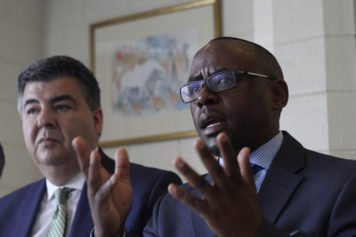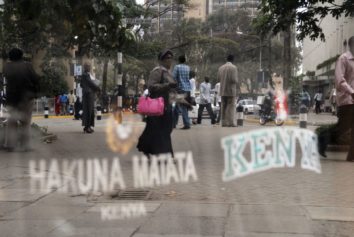The combination of crippling poverty and a lack of visible job opportunities have pushed children in many African countries to work in gold mines to earn meager wages, often with the blessing of their parents, who are desperate for any income to put food in their families’ bellies.
With the child labor market thriving in countries such as Burkina Faso, Madagascar and Kenya, an estimated one million children between 5 and 17 are engaged in small-scale mining and quarrying around the world, according to the UN International Labor Organization (ILO). In fact, the ILO estimates that in Africa children under 18 make up between 30 to 50 percent of the workforce in the small-scale gold mining operations.
In Burkina Faso, which is the fourth leading gold producer in Africa thanks to a boom in the last three years, children are being lured to the money available at the gold mines, forgoing school.
“The exact number of children abandoning schools for the mines in is still unclear,” Moussa Ouedraogo at the Ministry for National Education and Literacy told the BBC.
“Many schoolchildren are known to work in mines full-time, where they crush stones, sieve dust, transport water and cook,” he says, “while others go to the mines during school off-days and school holidays.”
In Kenya’s Nyanza province, the estimates are that 15,000 children are working in the gold mines.
“When you look at the levels of school drop-outs, the closer a school is to a gold mine, the lower the school attendance,” says the regional education director, Geoffrey Cherongis.
Not only are children losing valuable school days, but their health is being compromised, pointed out Emily Waga, a children’s officer in Migori.
“We rely on the goodwill of people to report cases, but this doesn’t happen often because parents encourage their children to seek employment at the mines,” she told the BBC.
“When people are poor, nothing that brings in income is dangerous,” she adds.
South African gold is more high-grade than the gold being mined in West Africa, but it can still sell for about $36 a gram on the world market. But child laborers are likely to get less than $1.20 a day for the long hours spent combing through streams for those glistening flakes.
“I would rather work here at the mine and at the end of the day they will give me money to spend,” one child said. “We are told those who have employed us are rich, but me, I just want a little money to buy good clothes and food for my mother.
“Even my parents say what I am doing is right. I can buy my own clothes,” he adds. “What is the point of being in school?”
In Madagascar, much of the mining work is being done by girls because boys have to stay home and look after the zebu, the hump-backed cattle that are ubiquitous on this island nation.
Children can earn $14 for working a physically demanding six-day week looking for gold—more than double what they could earn doing other menial tasks such as washing clothes.
The girls say their parents encourage them to work at the mines so they can buy clothes and food.


